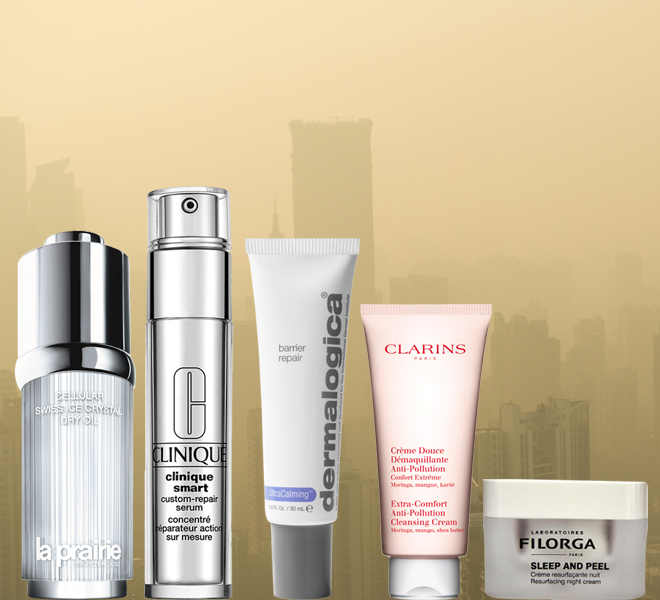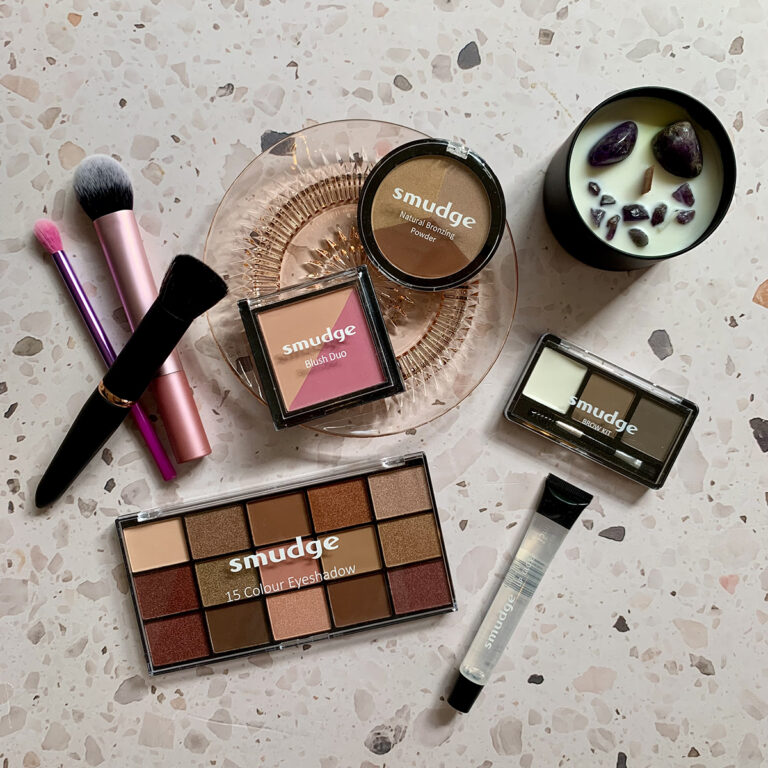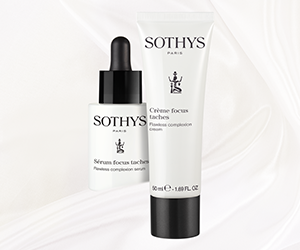With a surface area of between one-and-a-half and two square metres, your skin is the largest organ in your body. It’s made up of three distinctive layers – the epidermis, the dermis, and the hypodermis – and it contains the sebaceous glands and sweat glands which help to prevent dryness, protect skin against bacteria, and maintain core body temperature. Your skin really is in the front line, working full-time to protect your body from damage and disease.
As the years go by, skin loses fibrous tissue, cellular renewal is slower, the vascular and glandular network is reduced, and cellular hydration becomes impaired – all of these are the natural effects of ageing. However, environmental factors can significantly contribute to and speed up this process, by producing free radicals that destroy healthy skin cells and cause chronic skin inflammation at a cellular level. This in turn leads to the breakdown of the support structures of collagen and elastin in the skin, increasing the appearance of fine lines, wrinkles, and age spots and leaving your skin dehydrated, dull, rough and sensitised.
Environmental skin irritants can be broken down into three main categories: physical, chemical, and biological. Physical factors include sunlight, wind, heat and cold (both natural and artificial, like air-conditioning and heaters); biological triggers are certain plants, bacteria, fungi, pollens and pet hair; and chemical aggressors come from sources like pollution in the air and water, excess alcohol consumption, smoking, and household cleaners.
Some of these, of course, are avoidable but others are clearly not. So what are we to do? The first line of defence is diet: to a large extent your skin is what you eat, and you can do a lot to support the health and beauty of your skin from within by sticking to a wholesome, balanced, plant-based diet which provides a wide range of vitamins and minerals and is rich in antioxidants.
Dark berries like strawberries, raspberries and blueberries are great for your skin; so are green vegetables, whole grains, walnuts, green tea, and fish that contains plenty of omega-3 fatty acids. Omega-3 fatty acids have a particular ability to moderate inflammation; extra-virgin olive oil too has been shown to possess significant anti-inflammatory properties. Keep your immune system in peak condition by limiting sugar and processed foods, but the good news is that dark chocolate (in small amounts!) can actually promote better blood flow and help hydrate your skin. Most importantly, be sure to drink lots of water, to flush out toxins and keep your skin hydrated.
Dietary supplements can also help. Pre- and probiotics promote healthy immunity and reduce inflammation throughout the body, including in the skin, and help rebalance the composition of the skin, optimise its barrier function, neutralise toxins, and boost cellular antioxidant capacity. Vitamin D plays an essential role in healthy skin renewal and repair, by supporting the skin’s immune system and neutralising free radicals within the epidermal layers. With our more diligent (and of course necessary) use of sunscreen products, our skin’s ability to manufacture its own vitamin D is compromised, so a supplement could make a real difference.
And then of course there are the products specifically formulated for combatting environmental aggressors. You can get skincare products to strengthen the natural protective barrier of your skin and others to help prevent your skin from future free radical damage, and those that target pre-existing environmental damage.
As well as a regular routine of cleansing, moisturising and gentle exfoliating, a broad-spectrum sunscreen selected to suit your skin type and lifestyle and applied correctly is essential. For maximum benefit, look for products rich in antioxidants and reflective filters. In fact, when you’re choosing skincare products of any kind, antioxidants are a key ingredient or fighting the effects of environmental damage on your skin – they not only reduce sun damage but can also improve cell function, increase collagen production, restore elasticity and create healthier, younger skin cells. An antioxidant serum is a particularly good way to nourish and protect your skin.
Finally, managing your stress levels effectively can help reduce the inflammation caused and aggravated by environmental factors. Take mindful actions towards reducing stress, and you should see the benefits in your mind and body – and specifically in your skin.
Here, some of our favourite products to help fight off skin aggressors:
La Prairie Cellular Swiss Ice Crystal Dry Oil, R3875
Containing rare and pure oils, this lightweight product supports the skin’s lip barrier function, sealing in moisture for longer and leaving skin looking smooth and glowing.
Clinique Smart Custom-Repair Serum, R925
This smart serum provides the skin with custom repair functions by correcting the damage visible on the skin, as well as the damage that isn’t visible.
Dermalogica UltraCalming Barrier Repair, R560
A waterless moisturiser that helps repair skin with a damaged barrier and protects from future skin stress.
Clarins Extra-Comfort Anti-Pollution Cleansing Cream, R365
Filled with purifying moringa and nourishing shea and mango, this creamy cleanser detoxifies the skin and protects it from harmful pollutants.
Filorga Sleep and Peel, R865
Enriched with six hydroxy acids, this velvety night cream has a gentle peeling effect to help reduce the signs of pigmentation, brown spots and wrinkles.
Other articles you may be interested in:
Antioxidants and your skincare routine
Why you should include oils in your skincare routine
How sleep affects your skin
Silky serums
Is cleansing, toning and moisturising enough?







6 Responses
This information is really important. Great article. The products are pricey though.
What an important article. I would love to save up and get the Dermalogica UltraCalming Barrier Repair.
Very interested to know that Dermalogica’s barrier repair is a waterless formula since that’s usually the first on the list of ingredients for any moisturiser.
R3875 for a face cream!! I understand good skin care is pricey but jeez… Thanks for the information and the recommendations.
Looks like I need to add this to my skin regimen.
Wow, I did not know all these factors cause all these problems to our skin.Thank you for the information and I will take it into account and take care of my skin.